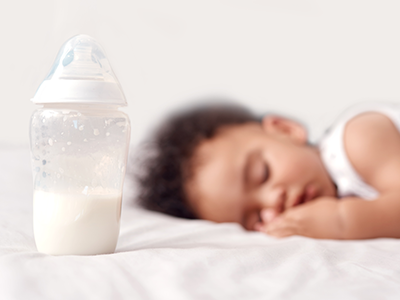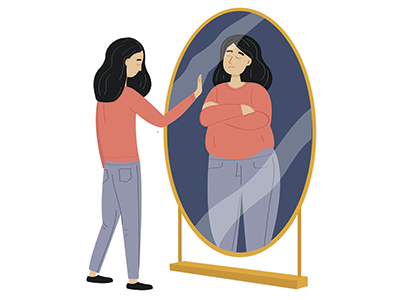With childhood obesity affecting millions of youth across the United States, I feel it is important to discuss the correlation between weight and mental health. Often people think of “mind” and “body” as two distinct things. However, the brain is an organ in your body the same as your heart, lungs or stomach.
Therefore, like other parts of the body, the brain can be affected negatively by excess weight. Moreover, the brain is a major contributor to how we eat and exercise, such as controlling our motivation to be healthy, our desire for food and our impulse control. Because of all of these factors, it is important to think about the correlation between weight and mental health.
Mental health disorders common in youth who are affected by obesity
Children who are affected by obesity are more likely than their peers to experience things like depression, anxiety or attention difficulties. These conditions are sometimes caused by negative experiences due to being overweight. For example, many of the patients we see in our clinics at Children’s National Hospital report that they have developed social anxiety as a result of feeling judged about their weight and appearance by their peers.
Others report the onset of depression due to feeling socially isolated or being teased about their weight. In turn, these experiences of depression or anxiety often make it more difficult to engage in behaviors that might improve health, such as eating well or exercising. Depression often makes motivation difficult, and kids who are concerned about others judging them may be reluctant to engage in activities like exercising in public.
Obesity and mental health research at Children’s National Hospital
Excess weight can also affect the way brains function in terms of learning, memory and impulse control.
In our research at Children’s National, we are working to identify areas that are particularly challenging for youth who are affected by obesity and how weight loss affects mental health. This is important information needed to provide treatment to youth who are affected by obesity in order to help them be healthy and function at their best each day.
What can parents do to help?
Given the correlation between weight and mental health, it is important for parents to consider their child’s mental health as another component of their physical well-being.
If you have concerns about potential depression, anxiety, learning problems or other behavior or mood concerns, it is important to seek a consultation from a professional. There are many treatments available that work to help a child with mental health concerns. Parents should consider this treatment as important a component of health care as any other.
Are you worried about your child’s mood and weight? Researchers at Children’s National want to learn about stopping depression and diabetes in teenagers! Eligible youth ages 12-17 are invited to participate in a 6-week virtual group program with compensation provided. Click here for more information!
 https://riseandshine.childrensnational.org/wp-content/uploads/2024/12/Healthy-holiday-eating-feature.jpg
300
400
Danielle Robbins
https://riseandshine.childrensnational.org/wp-content/uploads/2017/11/childrens_riseandshine_logo.jpg
Danielle Robbins2024-12-18 12:18:182024-12-30 12:33:39Healthy holiday eating tips for the whole family
https://riseandshine.childrensnational.org/wp-content/uploads/2024/12/Healthy-holiday-eating-feature.jpg
300
400
Danielle Robbins
https://riseandshine.childrensnational.org/wp-content/uploads/2017/11/childrens_riseandshine_logo.jpg
Danielle Robbins2024-12-18 12:18:182024-12-30 12:33:39Healthy holiday eating tips for the whole family





















Leave a Comment
Want to join the discussion?Feel free to contribute!